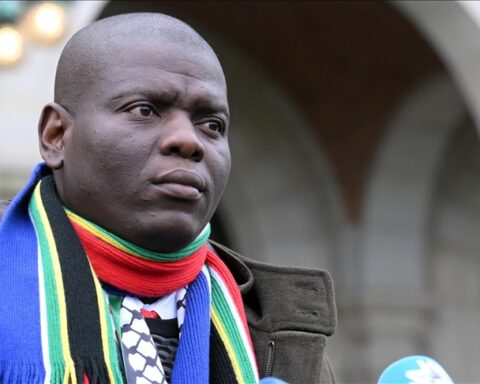Johannesburg – The Democratic Alliance on Friday said it has asked the Constitutional Court for direct access to challenge South Africa’s decision to grant Zimbabwean First Lady Grace Mugabe diplomatic immunity after she allegedly assaulted a local woman.
The official opposition filed papers a day after Afriforum and the alleged victim, Gabriella Engels, lodged a review application of the decision by International Relations Minister Maite Nkoana-Mashabane.
“The DA has filed papers in the Constitutional Court requesting direct access to argue that the decision of the Minister of International Relations and Cooperation, to grant diplomatic immunity to Grace Mugabe, should be set aside as wholly without legal merit and should thus be declared unconstitutional and invalid,” said James Selfe, the chairman of the DA’s federal executive.
Selfe said granting immunity had been “hasty, embarrassing and above all illegal and unconstitutional”.
He added that it was unconscionable the government allowed another high profile person to evade arrest in South Africa after the North Gauteng High Court ruled in February that it had violated the Constitution in the case of Sudanese President Omar al-Bashir.
The DA argues that nothing entitled President Robert Mugabe’s wife to diplomatic immunity.
Afriforum spokesman Willie Spies said the minority rights group had not thought it wise to approach the Constitutional Court directly as direct access was only granted in exceptional cases.
“But if the court allows it, we will apply to have our application heard there as well,” he said.
Mugabe was granted immunity five days after she allegedly viciously beat Engels with an extension cord in a plush Sandton hotel.
She was not an official member of the delegation accompanying the Zimbabwean president to a Southern African Development Community summit in South Africa.
Afriforum argues on behalf of Engels in court papers that immunity was granted to Mugabe solely to prevent her prosecution for a crime which could carry a prison sentence of five years or more.
It contends that it was irrational to grant her derivative immunity as the spouse of the Zimbabwean head of state, since in similar circumstances he would not be entitled to diplomatic immunity.








